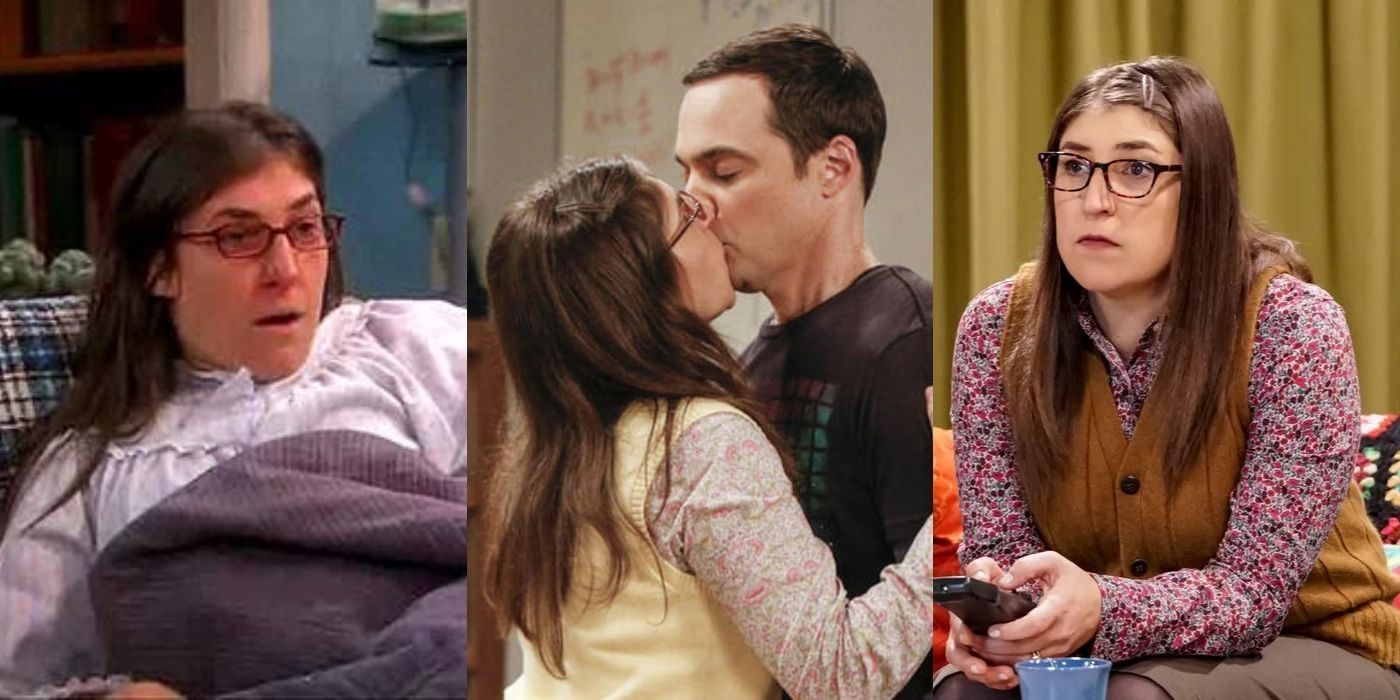
More Than Just ‘Sheldon’s Girlfriend’
When Amy Farrah Fowler first appeared at the end of Season 3 of The Big Bang Theory, few could have predicted the impact she would have on both the show and its most complex character, Sheldon Cooper. Introduced as a “female Sheldon” via an online dating match, Amy quickly proved she was far more than a quirky love interest. She became a symbol of transformation—not just for Sheldon, but for herself, and for the series’ approach to relationships and character depth.
Amy’s arc is one of the most inspiring on the show. She begins as a socially awkward neurobiologist with little experience in emotional intimacy or friendship. But over time, she blossoms—becoming a loyal friend, a determined partner, and eventually, a Nobel Prize winner. Her journey is a testament to the power of self-discovery, compromise, and quiet strength.
A Relationship Built on Science—and Real Growth
Unlike traditional TV romances based on instant chemistry or melodrama, Amy and Sheldon’s relationship was built slowly, with deliberate pacing. The two formed a connection over shared intellectual interests and mutual weirdness. Their love story defied expectations. It wasn’t fireworks and drama—it was handholding contracts, scheduled date nights, and negotiations about hugs.
Yet somehow, it worked.
In an early episode, Sheldon tells Leonard:
“Amy is a girl who is my friend, but not my girlfriend.”
But that changes. Gradually, Sheldon becomes more emotionally vulnerable. He begins to care about Amy’s feelings, celebrate her achievements, and make compromises—something early Sheldon would have considered illogical or unnecessary.
Amy doesn’t just adapt to Sheldon—she challenges him. She doesn’t let him hide behind his intellect or routines. Instead, she insists on being seen and respected. And slowly, Sheldon rises to meet her.
Redefining the TV ‘Nerd Girl’ Trope

Amy could have easily fallen into the stereotype of the “awkward smart girl who changes to win a man.” But instead, the show allowed her to grow on her own terms.
She gains confidence, not because Sheldon validates her, but because her friendships with Penny and Bernadette help her discover new sides of herself. From trying out makeup and gossip to expressing her opinions more assertively, Amy evolves without losing her core identity as a passionate scientist and devoted friend.
One of her most empowering moments is when she stands up to Sheldon’s resistance to intimacy, stating:
“I’m tired of being your girlfriend in a relationship that only works for you.”
This is not just a turning point for their relationship—it’s a milestone in Amy’s personal journey. She realizes she deserves more, and she isn’t afraid to ask for it.
From Fringes to Frontline: Amy’s Scientific Triumph
Amy’s character also represents the reality of being a woman in STEM (science, technology, engineering, and math). The show doesn’t treat her neurobiology career as a quirky hobby—it’s her passion and her identity. We see her presenting research, mentoring students, and collaborating on groundbreaking projects.
Her greatest professional moment comes when she and Sheldon win the Nobel Prize in Physics together. It’s not just a victory for their relationship—it’s a statement about intellectual partnership, equality, and perseverance.
In her moving Nobel acceptance speech, Amy addresses young girls everywhere:
“Don’t let anyone tell you you can’t be smart and beautiful… You can be both.”
That single line encapsulates everything Amy has come to represent: the breaking of binaries, the rewriting of expectations, and the balance of intellect and emotion.
Friendship and Feminine Strength
Beyond romance and science, Amy also helps The Big Bang Theory evolve in how it portrays female friendship. Her bond with Penny and Bernadette adds heart and humor to the series. Their “girl’s nights” aren’t just filler scenes—they’re spaces where these women grow, share vulnerabilities, and support each other’s ambitions.
Amy is never quite like Penny or Bernadette, but she’s loved just as she is. Her awkwardness is not mocked, but embraced. She doesn’t have to change to fit in—she’s accepted, and that acceptance gives her the confidence to flourish.
The Quiet Revolution of Amy Farrah Fowler
What makes Amy Farrah Fowler so compelling isn’t just that she changed Sheldon—it’s that she changed herself, on her terms. She brought vulnerability to a character who prided himself on invulnerability. She brought emotional intelligence to a group of men defined by their intellectual prowess. And she brought nuance to the idea of what it means to be a woman in a world that often values appearance over brains.
By the end of the series, Amy is not just Sheldon’s wife. She is a Nobel laureate. A best friend. A woman who navigated a complicated emotional landscape and emerged more complete than when she began.
Final Thoughts: An Unlikely Heroine Who Stole the Show
In a series filled with big laughs, iconic quirks, and unforgettable characters, Amy Farrah Fowler quietly became one of its most impactful players. Her legacy isn’t defined by grand gestures or wild plot twists. Instead, it’s built on steady, authentic growth—and the message that being yourself, in all your complexity, is more than enough.
She didn’t just rewrite Sheldon’s rules—she rewrote her own. And in doing so, she became a hero not just to the fans, but to anyone who’s ever felt a little out of place, and dared to believe they could still belong.